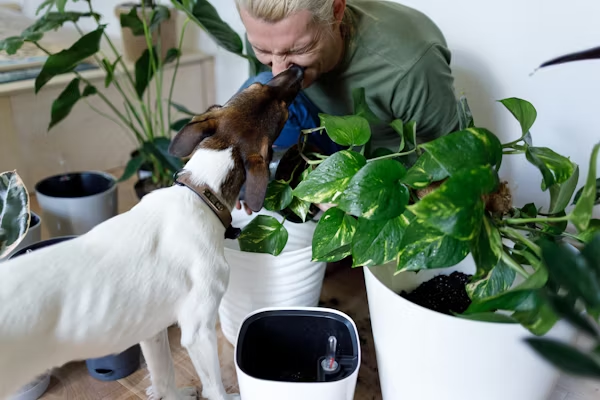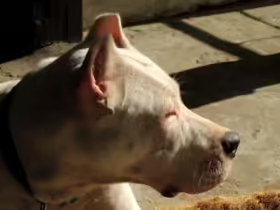Creating a pet-friendly balcony or rooftop garden is a fantastic way to enhance your living space while providing your furry companions with a safe and stimulating environment. This guide will explore essential considerations, suitable plants, and creative ideas to design a garden that both you and your pets will love.
1. Assess Your Space
Before you start building your garden, assess your balcony or rooftop space. Consider the following factors:
- Sunlight Exposure: Observe how much sunlight your space receives throughout the day. Some areas may be sunny, while others might be shaded. Knowing this will help you choose the right plants.
- Size and Layout: Measure the dimensions of your balcony or rooftop and consider how you want to arrange the plants, furniture, and other elements.
- Safety Hazards: Identify any potential hazards, such as sharp edges, open railings, or toxic substances. Ensure that your pets will be safe in this space.
2. Create a Safe Environment
Safety is paramount when designing a pet-friendly garden. Here are some ways to ensure your space is safe for your pets:
a. Secure Railings and Fencing
If your balcony or rooftop is elevated, it’s crucial to have secure railings to prevent any falls. You can enhance safety by:
- Installing netting or wire mesh if there are gaps in the railing.
- Using balcony planters that can also act as barriers to keep pets safely contained.
b. Choose Pet-Safe Materials
When selecting materials for your garden, opt for non-toxic options:
- Use durable, pet-safe furniture made from materials like aluminum or teak, which are resistant to weather and scratches.
- Avoid sharp or breakable items that could harm your pets.
c. Avoid Toxic Plants
Many common plants are toxic to pets. Here’s a list of some plants to avoid:
- Lilies
- Azaleas
- Oleander
- Sago palms
Instead, choose pet-safe plants, which we’ll discuss in the next section.
3. Select Pet-Friendly Plants
Choosing the right plants is essential for a pet-friendly garden. Here are some pet-safe options to consider:
a. Herbs
Herbs are not only safe for pets but also useful for cooking and adding fragrance to your space. Consider:
- Basil
- Mint
- Rosemary
- Thyme
b. Flowers
Brighten your garden with flowers that are safe for pets, such as:
- Sunflowers
- Marigolds
- Zinnias
- Snapdragons
c. Foliage Plants
Adding greenery can create a lush environment. Here are some safe foliage plants:
- Spider plant
- Boston fern
- Bamboo palm
- Areca palm
d. Succulents
Succulents are a great choice for low-maintenance gardening. Safe options include:
- Haworthia
- Christmas cactus
- Echeveria
4. Plan Your Garden Layout
Designing the layout of your balcony or rooftop garden is an exciting step. Here are some tips for creating an aesthetically pleasing and functional space:
a. Vertical Gardening
If space is limited, consider vertical gardening techniques:
- Wall Planters: Use wall-mounted planters to maximize vertical space.
- Hanging Baskets: Hang baskets from the railing or ceiling to add greenery without taking up floor space.
b. Designated Pet Area
Create a designated area for your pets:
- Use pet-friendly artificial turf to create a small patch of grass for them to enjoy.
- Incorporate soft outdoor rugs or mats for comfort.
c. Seating and Play Areas
Incorporate comfortable seating and play areas for both you and your pets:
- Add a cozy chair or bench for relaxation.
- Provide toys and climbing structures for cats, such as cat trees or shelves.
5. Add Comfort Features
Enhancing your pet-friendly garden with comfort features can make it more enjoyable for both you and your pets. Consider the following:
a. Shade Solutions
Provide shade to protect your pets from overheating, especially in sunny locations:
- Use outdoor umbrellas or shade sails.
- Create a pergola or trellis with climbing plants to offer natural shade.
b. Water Sources
Make sure your pets stay hydrated while outdoors:
- Place a pet water fountain or bowl to encourage them to drink.
- Consider adding a small water feature, like a fountain or pond, as long as it’s safe for pets.
6. Implement Pet Safety Measures
Ensuring your pets are safe while enjoying the garden is crucial. Here are some safety measures you can take:
a. Regular Monitoring
Keep a close eye on your pets while they’re outside. Regularly check for any potential hazards or escape routes.
b. Cleaning Up
Regularly clean up any debris, such as fallen leaves, broken pots, or leftover food, to keep the space tidy and safe.
c. Provide Supervision
If your pets are not used to outdoor environments, supervise their time outside until they become comfortable.
7. Engage Your Pets with Fun Activities
Make your balcony or rooftop garden a fun and engaging space for your pets:
a. Interactive Play
Incorporate interactive play areas for dogs and cats:
- Use toys that encourage physical activity, like balls or ropes for dogs.
- Install climbing shelves and scratching posts for cats.
b. Exploration Opportunities
Allow your pets to explore their environment:
- Create pathways with safe materials for them to wander.
- Use tunnels or pet-friendly obstacle courses for extra fun.
8. Personalize the Space
Make your balcony or rooftop garden uniquely yours while catering to your pets’ needs:
a. Decorate with Style
Choose decorations that reflect your style:
- Use colorful planters and garden art that complement your plants.
- Consider adding pet-themed decorations, like custom pet portraits.
b. Seasonal Changes
Rotate plants and decorations seasonally to keep the garden fresh and interesting for both you and your pets.
9. Maintenance Tips for a Thriving Garden
To keep your pet-friendly garden healthy and thriving, follow these maintenance tips:
a. Regular Watering
Ensure your plants are well-watered, especially during hot weather. Consider using self-watering pots for convenience.
b. Pruning and Trimming
Regularly prune and trim plants to encourage growth and prevent overgrowth that can create hiding spots for pests.
c. Pest Control
Use pet-safe pest control methods to protect your garden. Consider natural remedies like neem oil or insecticidal soap.
d. Fertilizing
Use organic fertilizers to nourish your plants. Avoid chemicals that could harm your pets.
Conclusion
Building a pet-friendly balcony or rooftop garden is a rewarding project that enhances your living space and enriches your pets’ lives. By choosing safe plants, creating a secure environment, and incorporating engaging activities, you can create a beautiful oasis for both you and your furry friends. Remember to prioritize safety and comfort while enjoying the benefits of outdoor gardening. Happy gardening!











Leave a Reply